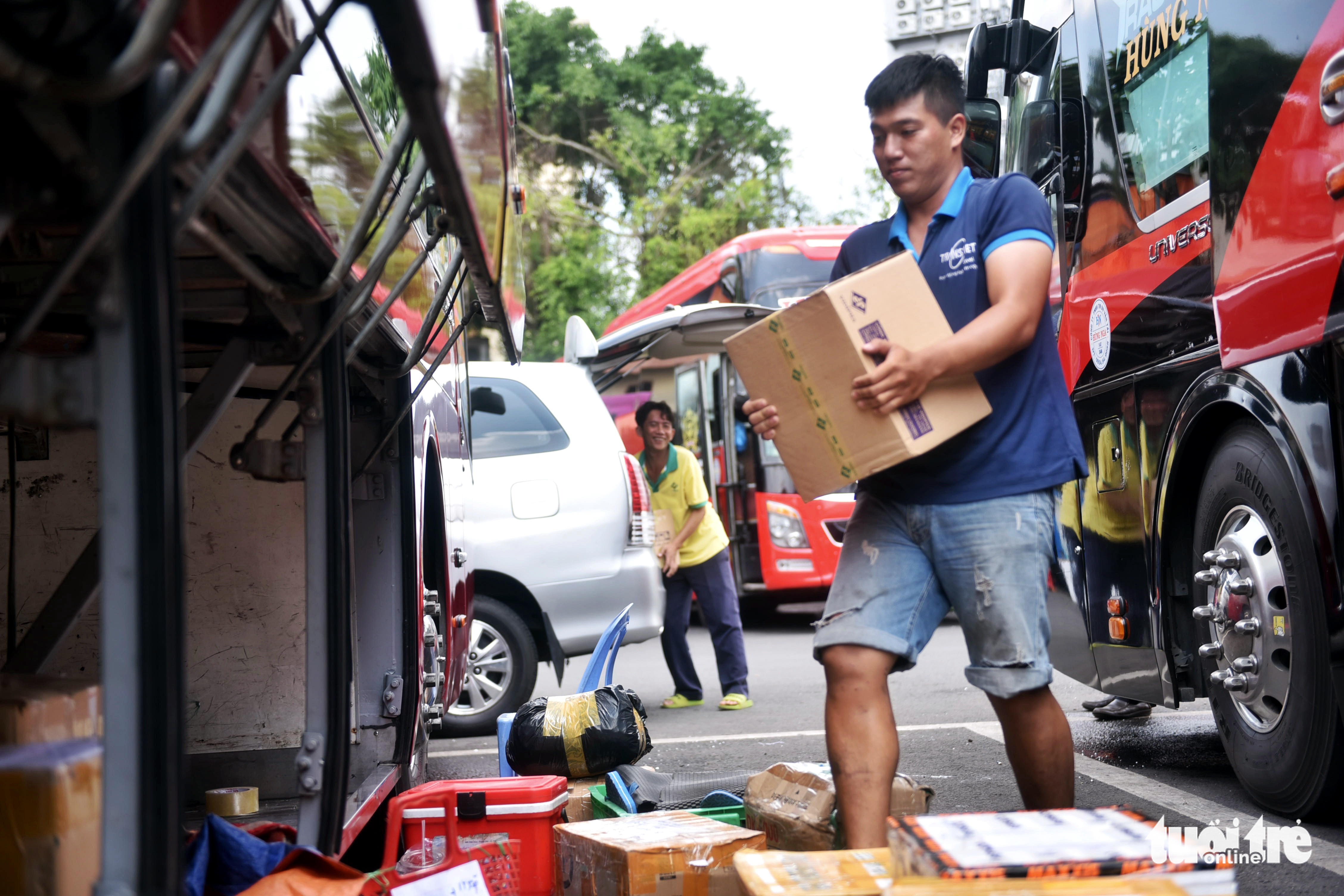Many transport businesses in Vietnam have been forced to reduce the scale of their operations and sell their vehicles due to a sharp fuel price hike, which has been hampering their post-pandemic recovery and causing considerable losses.
An increasing number of transport firms are unable to cope with the continuous jump in oil and gas prices, as fuel prices in Vietnam reached a record high on Monday, with RON95-V gasoline selling at VND33,620 (US$1.45) per liter and diesel oil at VND30,410 ($1.31) per liter.
As transport activities in the country have yet to recover following the COVID-19 pandemic, the unprecedented hike in fuel prices brings about new difficulties to already-struggling businesses.
At the parking lot of a company named P.T., hundreds of four- and seven-seater taxis have been inactive for nearly a month, and it remains unclear when they will get back on the road again.
Meanwhile, several passenger bus lines are on the verge of bankruptcy, being forced to sell their vehicles at a low price to minimize losses.
Aside from soaring gasoline costs, expensive diesel oil has also dealt a blow to local businesses since it is the most commonly used fuel in freight and passenger transport.
Dao Ngoc Tuan, owner of Tuan Duyen Bus Line, which operates along the Hanoi-Ho Chi Minh City route, stated that the cost of oil for a north-to-south trip has jumped to VND30 million ($1,291) from about VND15 million ($645).
Despite rising costs, the number of passengers only adds up to about 40 percent of pre-pandemic figures, Tuan complained, adding that the more trips the company operates, the higher the deficits become.
“We have thought about selling our buses, but we may not be able to sell them at a high price given the current gasoline rates,” he said.
Nguyen Kha, owner of Anh Thu Bus Line operating on the Ho Chi Minh City-Da Nang route, said he had sold two out of five 45-seater buses.
“We suffered losses worth VND4-5 million [$172-215] every journey,” Kha elaborated.
Increasing the fare is not an effective solution because it will result in a drop in passenger numbers, he added.
The cost of cargo transport via a tractor-trailer between Hanoi and Ho Chi Minh City is about VND80 million ($3,400), but the petrol alone already costs over VND45 million ($1,930), said Tran Van Thanh, general director of A Chau Transportation Corporation.
Businesses also have to pay other fees, including tolls and salaries and meals of drivers, Thanh added.
“We did not raise our fares in the wake of the previous fuel price hikes, but we have to change our mind this time, for we are no longer able to handle the deficit,” he stated.
Many other transport companies already announced an eight-to-ten-percent increase in fares.
“We hope that passengers will understand that we have no other option,” said a representative of Viet Tan Phat Bus Line, which was set to increase the fare for a trip from Ho Chi Minh City to Central Highlands provinces by VND50,000-90.000 ($2.1-3.8) starting Wednesday.
Do Van Thang, general director of Vintrans JSC, stated that the company has taken countless measures to reduce losses over the past two months.
Vintrans sold many of its old trucks and bought new vehicles with better fuel efficiency, while adjusting their operating procedures.
The firm is considering a five-to-seven-percent fare rise, Thang explained.
Authorities need to implement suitable tax reduction policies to help businesses cope with the current fuel prices, said Nguyen Kim Thanh, director of Kim Phat Transport Company.
“Oil and gas must be considered as essential commodities so that suitable solutions can be carried out,” Thanh stressed.
Like us on Facebook or follow us on Twitter to get the latest news about Vietnam!

















































